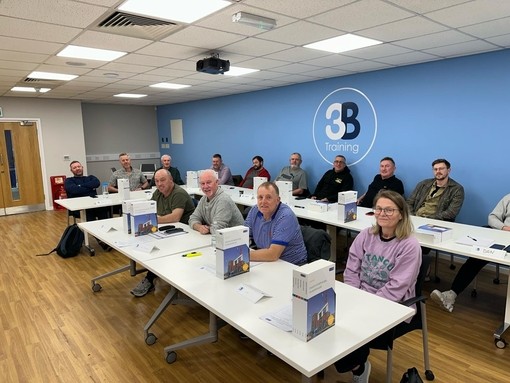
How to become a... Commissioning Engineer
Commissioning engineers play an important role in all types of engineering projects, with excellent opportunities available around the country.
Read on to find out more about what skills you need to enter this field, and discover if this career is the right fit for you.
RATES
£20-40k
HOT SPOTS
Hinkley Point C / HS2
QUALIFICATIONS
Degree | CSCS
What do commissioning engineer jobs involve?
Commissioning engineers provide vital support for construction and engineering projects. They’re responsible for commissioning and overseeing the installation of equipment, plant and systems. In this role, it’s up to you to ensure that everything is working safely and efficiently.
You could find yourself working on all types of engineering projects, meaning your daily duties may be different depending on the sector, employer and project you work on. However, some tasks you can expect to undertake include investigating problems and repairing faults, coordinating testing and analysis, producing test and commissioning documents, supervising engineering staff, providing technical support and more.
What is a commissioning engineers salary?
Salaries for commissioning engineer jobs can vary depending on the sector, employer and project you’re working on, as well as by location. In an entry-level position, you can expect to earn between £20,000 and £26,000 per year. As you move up the career ladder and gain more experience, you could see this figure climb to between £35,000 and £40,000 per year.
Commissioning engineers at the peak of their career, especially those who have gained chartered status, will see their salary increase even further, with some earning up to £80,000 per year.
These figures are intended as a guideline only.
What skills do I need?
To be successful in your career, you’ll need to have excellent maths and technical skills, and the ability to think methodically when working on projects. Time management and the ability to multi-task are key, to enable you to maintain an overview of multiple elements of a project, while still handling day-to-day activities.
As you’ll be overseeing the work of other engineering staff, you’ll need to possess great interpersonal and communication skills, as well as strong leadership abilities. Dealing with unexpected issues that can arise at any moment means you’ll need to be confident working under pressure, and willing to sometimes work unsociable hours.
What qualifications do I need?
To become a commissioning engineer, you’ll need to have an undergraduate degree in a relevant discipline, such as civil, mechanical or electrical engineering. While not necessary for an entry-level role, having a relevant postgraduate qualification can be helpful, especially if you’re looking to move higher up the career ladder.
Once you’ve gained some experience, you may also want to work towards achieving incorporated or chartered engineer status, as this can help to boost your prospects and earning potential.
If you’re going to be spending time on a construction site, you’ll also need to apply for a relevant Construction Skills Certification Scheme (CSCS) card.
What are the hours and conditions?
You’ll usually work between 35 and 40 hours a week, with your week running Monday to Friday, 9 to 5. However, there may be times when you need to work outside of these hours at evenings and weekends, in order to meet project deadlines.
Your working location will depend on the project and employer, but will usually be split between an office and construction site. This means travel will be a regular part of your job, with the possibility of some time spent away from home as well.
Career progression
There are great opportunities for progression throughout your career, as you gain more experience and complete further training. Working towards gaining incorporated or chartered engineer status can help you move into senior or principal engineer roles.
Areas of specialism
Due to the nature of the role, commissioning engineer jobs can be across multiple industries – wherever there are engineering projects taking place. Many will choose to specialise in a specific industry, becoming seen as an expert in their chosen field.
To search for opportunities across the sector click here. Or, browse our dedicated HS2 and Hinkley Point C pages for more information.













